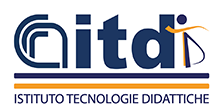This research study was commissioned by the EC’s Joint Research Council (JRC B-4) to investigate how Computational Thinking (CT) is currently positioned within compulsory school education in Europe’s various Member States, as well as outside the EU. Called CompuThink II for short, the study will update the earlier 2016 JRC report “Developing Computational Thinking in Compulsory Education: implications for policy and practice”. In broad terms, CT is regarded as a thinking process entailed in designing solutions that can be executed by a computer, a human, or a combination of both. As such, it covers both core computer science concepts and practices, such as abstraction and programming, as well as transversal skills like creativity and collaboration. CT is Strategic Priority 2 in the European Commission´s recently published “Digital Education Action Plan (2021-2027) - Resetting education and training for the digital age”, making CompuThink II central to EC strategy planning for improving the provision of digital skills and competences.
CompuThink II contributes to this effort with a set of key activities and outputs carefully drawn up to provide evidence-driven responses to the research questions the study seeks to answer. These undertakings include:
- input from leading experts, stakeholders and proponents in CT and compulsory education so as to gain fresh insights and critical feedback;
- a comprehensive up-to-date review of both formal research and grey literature;
- a survey of policy initiatives for integrating CT in compulsory school curricula across Europe
(and beyond); - a set of detailed case studies investigating the ‘how’ and ‘why’ behind the practical integration of CT in compulsory education, with workshops and interviews involving a wide range of experts, actors and stakeholders;
- an updated report on CT in compulsory education to be published in collaboration with the JRC;
- production of a research paper for publication in a high-standing scientific journal.
To ensure high-quality outputs from all these activities, the study adopts thorough, systematic approaches to data generation, gathering, analysis and reporting.
 Italiano (Italia)
Italiano (Italia)  English (United Kingdom)
English (United Kingdom) 

